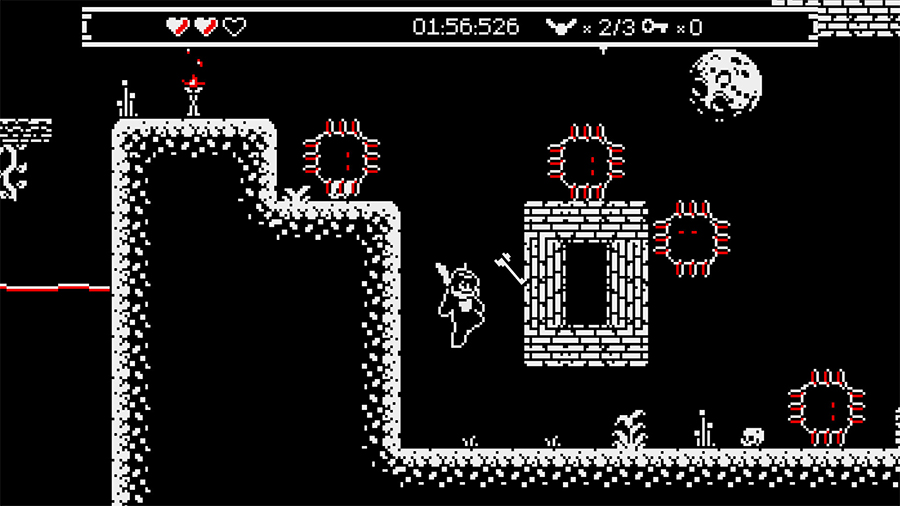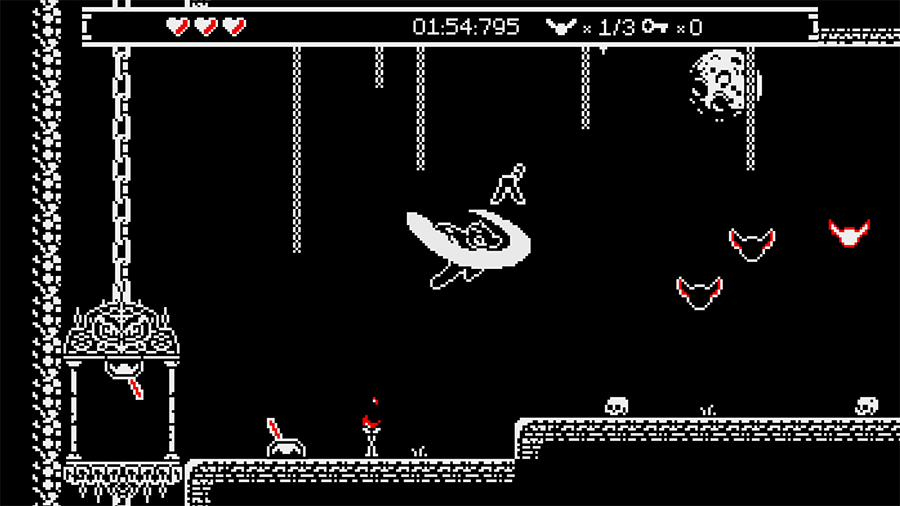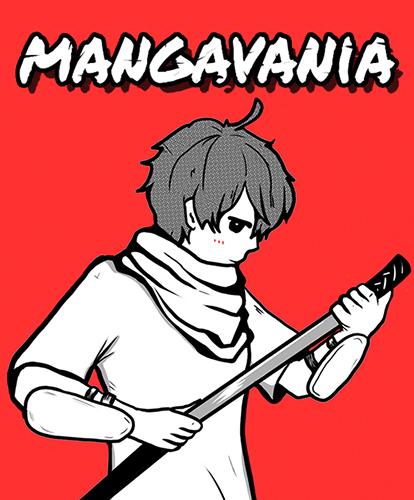- CLASSIC MAGAZINES
- REVIEW CREW
A show recapping what critics thought back
when classic games first came out! - NEXT GENERATION'S BEST & WORST
From the worst 1-star reviews to the best
5-stars can offer, this is Next Generation! - NINTENDO POWER (ARCHIVE)
Experience a variety of shows looking at the
often baffling history of Nintendo Power! - MAGAZINE RETROSPECTIVE
We're looking at the absolutely true history of
some of the most iconic game magazines ever! - SUPER PLAY'S TOP 600
The longest and most ambitious Super NES
countdown on the internet! - THEY SAID WHAT?
Debunking predictions and gossip found
in classic video game magazines! - NEXT GENERATION UNCOVERED
Cyril is back in this spin-off series, featuring the
cover critic review the art of Next Generation! - HARDCORE GAMER MAGAZING (PDF ISSUES)
Download all 36 issues of Hardcore Gamer
Magazine and relive the fun in PDF form!
- REVIEW CREW
- ELECTRONIC GAMING MONTHLY
- ELECTRONIC GAMING MONTHLY RANKS
From Mario to Sonic to Street Fighter, EGM
ranks classic game franchises and consoles! - ELECTRONIC GAMING MONTHLY BEST & WORST
Counting down EGM’s best and worst reviews
going year by year, from 1989 – 2009! - ELECTRONIC GAMING BEST & WORST AWARDS
11-part video series chronicling the ups and
downs of EGM’s Best & Worst Awards!
- ELECTRONIC GAMING MONTHLY RANKS
- GAME HISTORY
- GAME OVER: STORY BREAKDOWNS
Long-running series breaking down game
stories and analyzing their endings! - A BRIEF HISTORY OF GAMING w/ [NAME HERE]
Real history presented in a fun and pithy
format from a variety of game historians! - THE BLACK SHEEP
A series looking back at the black sheep
entries in popular game franchises! - INSTANT EXPERT
Everything you could possibly want to know
about a wide variety of gaming topics! - FREEZE FRAME
When something familiar happens in the games
industry, we're there to take a picture! - I'VE GOT YOUR NUMBER
Learn real video game history through a series
of number-themed episodes, starting at zero! - GREAT MOMENTS IN BAD ACTING
A joyous celebration of some of gaming's
absolute worst voice acting!
- GAME OVER: STORY BREAKDOWNS
- POPULAR SHOWS
- DG NEWS w/ LORNE RISELEY
Newsman Lorne Riseley hosts a regular
series looking at the hottest gaming news! - REVIEW REWIND
Cyril replays a game he reviewed 10+ years
ago to see if he got it right or wrong! - ON-RUNNING FEUDS
Defunct Games' longest-running show, with
editorials, observations and other fun oddities! - DEFUNCT GAMES QUIZ (ARCHIVE)
From online quizzes to game shows, we're
putting your video game knowledge to the test!- QUIZ: ONLINE PASS
Take a weekly quiz to see how well you know
the news and current gaming events! - QUIZ: KNOW THE GAME
One-on-one quiz show where contestants
find out if they actually know classic games! - QUIZ: THE LEADERBOARD
Can you guess the game based on the classic
review? Find out with The Leaderboard!
- QUIZ: ONLINE PASS
- DEFUNCT GAMES VS.
Cyril and the Defunct Games staff isn't afraid
to choose their favorite games and more! - CYRIL READS WORLDS OF POWER
Defunct Games recreates classic game
novelizations through the audio book format!
- DG NEWS w/ LORNE RISELEY
- COMEDY
- GAME EXPECTANCY
How long will your favorite hero live? We crunch
the numbers in this series about dying! - VIDEO GAME ADVICE
Famous game characters answer real personal
advice questions with a humorous slant! - FAKE GAMES: GUERILLA SCRAPBOOK
A long-running series about fake games and
the people who love them (covers included)! - WORST GAME EVER
A contest that attempts to create the worst
video game ever made, complete with covers! - LEVEL 1 STORIES
Literature based on the first stages of some
of your favorite classic video games! - THE COVER CRITIC
One of Defunct Games' earliest shows, Cover
Critic digs up some of the worst box art ever! - COMMERCIAL BREAK
Take a trip through some of the best and
worst video game advertisements of all time! - COMIC BOOK MODS
You've never seen comics like this before.
A curious mix of rewritten video game comics!
- GAME EXPECTANCY
- SERIES ARCHIVE
- NINTENDO SWITCH ONLINE ARCHIVE
A regularly-updated list of every Nintendo
Switch Online release, plus links to review! - PLAYSTATION PLUS CLASSIC ARCHIVE
A comprehensive list of every PlayStation
Plus classic release, including links! - RETRO-BIT PUBLISHING ARCHIVE
A regularly-updated list of every Retro-Bit
game released! - REVIEW MARATHONS w/ ADAM WALLACE
Join critic Adam Wallace as he takes us on a
classic review marathon with different themes!- DEFUNCT GAMES GOLF CLUB
Adam Wallace takes to the links to slice his way
through 72 classic golf game reviews! - 007 IN PIXELS
Adam Wallace takes on the world's greatest spy
as he reviews 15 weeks of James Bond games! - A SALUTE TO VAMPIRES
Adam Wallace is sinking his teeth into a series
covering Castlevania, BloodRayne and more! - CAPCOM'S CURSE
Adam Wallace is celebrating 13 days of Halloween
with a line-up of Capcom's scariest games! - THE FALL OF SUPERMAN
Adam Wallace is a man of steel for playing
some of the absolute worst Superman games! - THE 31 GAMES OF HALLOWEEN
Adam Wallace spends every day of October afraid
as he reviews some of the scariest games ever! - 12 WEEKS OF STAR TREK
Adam Wallace boldly goes where no critic has
gone before in this Star Trek marathon!
- DEFUNCT GAMES GOLF CLUB
- DAYS OF CHRISTMAS (ARCHIVE)
Annual holiday series with themed-episodes
that date all the way back to 2001!- 2015: 30 Ridiculous Retro Rumors
- 2014: 29 Magazines of Christmas
- 2013: 29 Questionable Power-Ups of Christmas
- 2012: 34 Theme Songs of Christmas
- 2011: 32 Game Endings of Christmas
- 2010: 31 Bonus Levels of Christmas
- 2009: 30 Genres of Christmas
- 2008: 29 Controls of Christmas
- 2007: 34 Cliches of Christmas
- 2006: 33 Consoles of Christmas
- 2005: 32 Articles of Christmas
- 2004: 31 Websites of Christmas
- 2003: 29 Issues of Christmas
- 2002: 28 Years of Christmas
- 2001: 33 Days of Christmas
- NINTENDO SWITCH ONLINE ARCHIVE
- REVIEW ARCHIVE
- FULL ARCHIVE
Mangavania
The new game Mangavania is neither a manga nor based on one. It’s also not a Metroidvania game, at least not in the traditional sense. In fact, everything about the name is a lie. A dirty, rotten, smelly lie. It’s also a lot of fun and I’m going to recommend it. Here’s my review of Mangavania.
This is the story of a young ninja named Yuhiko, who is on a mission through the underworld in a last-ditch effort to find a cure for his brother’s illness. Through twenty challenging stages, he’ll fight undead monsters, save the lost souls and take on two wonderfully-designed bosses in order to save a family member.
Mangavania is one of those very simple and cheap throwback games that we’re used to seeing from publisher Sometimes You. If that name sends a shiver down your spine, don’t worry, because this is one of the better games from the infamous company. Yes, it’s a simple action/platformer with moves and abilities we’ve seen in countless other games, yet it handles well and is clearly made by somebody who knows a thing or two about great level construction.
The goal in most levels is fairly straight-forward: You explore the self-contained, non-linear stages in order to track down a set number of red bats, which will open up the exit door that will send you to the next stage, where you’ll do the exact same thing again. Obviously, there are a lot of enemies and obstacles that will get in the way, as well as a lost soul that is hidden away in every level.
Yuhiko may be young, but there are more than enough moves to get the job done. Beyond the typical sword attacks and a few wall jumps, we’re able to buy a few helpful abilities that will make every level a lot easier. Yuhiko will be able to double jump, dash forward and even use a bow and arrow to hit far away enemies and targets. Although optional at first, the game will start to require these upgrades for the puzzle solving. For example, you’ll want a ranged weapon for the exploding enemies and a dash move to reach the harder platforms.
 Click For the Full Picture Archive
Click For the Full Picture ArchiveIn case you haven’t noticed, these moves and abilities come straight out of a typical Metroidvania game. However, as far as the structure goes, this is not your typical Metroidvania game. Normally, there would be one big map you would poke around, with the goal of picking up new items or powers that will open up new sections to explore. It’s a tried and true formula, so you expect certain things when you see the genre tag. By splitting up the game into twenty small, bite-sized stages, Mangavania ditches most of the genre tropes. In fact, I’m just going to say that this is not a Metroidvania game, at least not in the way most people expect.
The game is also not a manga, but at least it goes for a stylish black and white look that evokes the spirit of the books. Sadly, the game misses a big opportunity by not having manga-style panels to help fill in the story. Perhaps this is asking too much, seeing as this comes from a first-time developer, but with a name like Mangavania, you can’t help but want to see a few panels here and there.
As a first-time developer, Alexander Nikolaev has a lot to be proud of. The important thing is that he gets all of the basics right. Mangavania is a good playing platformer with precise handling and easy gameplay. Every time I died, it was because I did something wrong or I missed the jump. There were no cheap deaths and I never once fumbled around with the controls. I also think the level designs are clever and fun to explore. They are never so large that you’ll get lost, yet they are always large enough to make you feel like you earned something when finally opening up the exit gate. The stages are full of unique obstacles and Alexander doesn’t attempt the same trick too many times. There may only be twenty stages, but there’s a surprising amount of variety between them.
 Click For the Full Picture Archive
Click For the Full Picture ArchiveI am also really impressed with the boss designs. I think the second one you face is genuinely creepy looking, and I love how it ties into something we saw in the regular levels. Unfortunately, I didn’t find these boss encounters to be much fun to play, but they are mercifully short, allowing us to get back to the good stuff in a hurry.
Most of my other problems with the game can likely be attributed to the developer’s time, budget and inexperience. A good example of this is the background, something that doesn’t change from beginning to end. While I love the level designs, the actual background is a bit bland. It would have been nice to see it go from night to day as we traveled through the 20 stages. I also wish Mangavania came with an options menu, allowing me to adjust the music, add filters and maybe even adjust the button configuration. This is pretty much standard in most games, so it’s disappointing that there’s no option menu here.
Thankfully, the few issues I have with the game are hardly deal-breakers. Yes, it would be nice to have manga-inspired cinemas, more levels and better backgrounds, but first-time developers can only be so ambitious. Instead of biting off more than he could chew, Alexander delivered a fun action game with enjoyable level designs and great gameplay. That’s a win in my book, which is why I have no problem recommending the dubiously-titled Mangavania.
HOME |
CONTACT |
NOW HIRING |
WHAT IS DEFUNCT GAMES? |
NINTENDO SWITCH ONLINE |
RETRO-BIT PUBLISHING
Retro-Bit |
Switch Planet |
The Halcyon Show |
Same Name, Different Game |
Dragnix |
Press the Buttons
Game Zone Online | Hardcore Gamer | The Dreamcast Junkyard | Video Game Blogger
Dr Strife | Games For Lunch | Mondo Cool Cast | Boxed Pixels | Sega CD Universe | Gaming Trend
Game Zone Online | Hardcore Gamer | The Dreamcast Junkyard | Video Game Blogger
Dr Strife | Games For Lunch | Mondo Cool Cast | Boxed Pixels | Sega CD Universe | Gaming Trend
Copyright © 2001-2025 Defunct Games
All rights reserved. All trademarks are properties of their respective owners.
All rights reserved. All trademarks are properties of their respective owners.





























